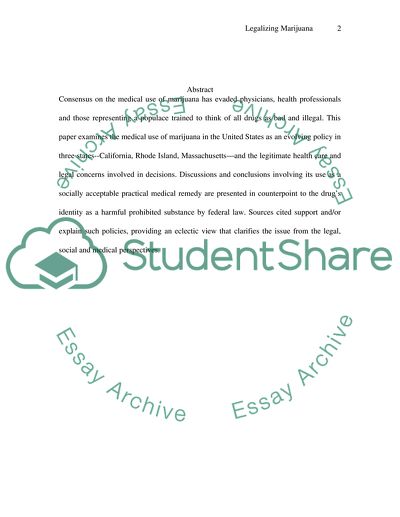Cite this document
(“Legalizing Marijuana: Evolving Medical Use Policy Research Paper”, n.d.)
Legalizing Marijuana: Evolving Medical Use Policy Research Paper. Retrieved from https://studentshare.org/health-sciences-medicine/1726043-legalizing-medical-marijuana-in-the-us-with-a-focus-on-ca-ma-and-ri
Legalizing Marijuana: Evolving Medical Use Policy Research Paper. Retrieved from https://studentshare.org/health-sciences-medicine/1726043-legalizing-medical-marijuana-in-the-us-with-a-focus-on-ca-ma-and-ri
(Legalizing Marijuana: Evolving Medical Use Policy Research Paper)
Legalizing Marijuana: Evolving Medical Use Policy Research Paper. https://studentshare.org/health-sciences-medicine/1726043-legalizing-medical-marijuana-in-the-us-with-a-focus-on-ca-ma-and-ri.
Legalizing Marijuana: Evolving Medical Use Policy Research Paper. https://studentshare.org/health-sciences-medicine/1726043-legalizing-medical-marijuana-in-the-us-with-a-focus-on-ca-ma-and-ri.
“Legalizing Marijuana: Evolving Medical Use Policy Research Paper”, n.d. https://studentshare.org/health-sciences-medicine/1726043-legalizing-medical-marijuana-in-the-us-with-a-focus-on-ca-ma-and-ri.


